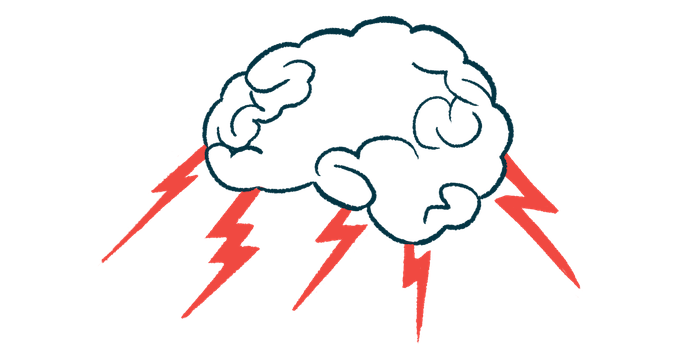Memory Problems Common in Sjögren’s, Linked to Global Cognitive Impairment
Study finds 'tight interplay' between cognition and depression

Memory complaints in people with primary Sjögren’s syndrome are linked to global cognitive impairment — problems affecting not only memory but also other mental faculties, according to data from a small study.
While researchers noted that “associated psychiatric and sleep disorders greatly interfere” with cognition in Sjögren’s patients, they found that these impairments “could not be explained alone by anxiety, depression or sleep disorders.”
The study results highlight the need for memory and cognitive problems in Sjögren’s to be “further investigated using new diagnostic tools such as biomarkers … and/or innovative radiological approaches,” the team wrote.
Titled “The interplay between cognition, depression, anxiety, and sleep in primary Sjogren’s syndrome patients,” the study was published in the journal Scientific Reports.
Global cognitive impairment in Sjögren’s
Sjögren’s syndrome is an autoimmune disorder in which immune cells attack cells in the glands that produce tears and saliva. This causes the “typical” symptoms of the disease: dry mouth and dry eyes.
But patients also can develop extra-glandular symptoms — most commonly, cognitive issues that contribute to fatigue and depression. Most patients experience “brain fog” symptoms, which manifest as memory lapses, forgetfulness, mental confusion, and difficulties in concentrating, organizing, or anticipating future events.
While many common problems linked to the disorder are well-known, the full plethora of cognitive symptoms in patients with primary Sjögren’s — a form of the disease that is not associated with another health condition — remain poorly understood.
To learn more, a team led by researchers in France conducted a comprehensive cognitive evaluation of 32 adults with primary Sjögren’s with memory complaints. All were followed at the Montpellier University Hospital between November 2016 and January 2019.
Participants were evaluated by neuropsychologists who conducted a battery of cognitive tests. Patients had a median age of 58 at the time of testing, and nearly all (97%) were female.
According to the test results and neuropsychologist assessments, patients were classified into three categories, depending on their cognitive skills. Some were considered to have a global memory impairment, while others had a global impairment in executive functions, or a global impairment in instrumental functions.
Executive functions encompass a set of mental skills that include working memory, flexible thinking, planning, and self-control. Instrumental functions, meanwhile, include mental faculties involved in language, learned motor activity, or praxis, and gnosis — the brain’s ability to recognize previously learned information.
Global cognitive profiles were classified as normal, borderline (abnormal with no clinical impact), or pathological — meaning, associated with disease — according to pre-established scores for each test.
Fatigue, sleeping disorders, depression, and anxiety also were evaluated. Health-related quality of life was assessed by the EuroQol 5 Dimensions (EQ-5D) and the Short-Form 36 (SF-36), both widely used in patients with autoimmune diseases. In both, lower scores indicate a worse quality of life.
Fatigue, depression, and sleep problems common
All patients showed a global level of cognitive impairment: 15 (47%) had borderline cognitive impairment, and 17 patients (53%) exhibited pathological cognitive impairments.
Pathological impairments in global memory were seen in 12 patients (37%), in executive functions in seven patients (22%), and in instrumental functions in five patients (17%). Some patients showed an overlap of impairments across different cognitive parameters.
A total of 10 patients (32%) showed abnormal levels of fatigue, as assessed by the Chalder Fatigue scale, a commonly used self-administered questionnaire. Depression, assessed by the Beck Depression Inventory (BDI) version 2, was seen in 12 of 30 patients (40%). Five had a severe form of depression.
Anxiety ranging from mild to very severe was seen in 14 of 29 patients (48%), with 53% reporting poor self-esteem. Sleep disorders also were common, with 55% of patients reporting excessive daytime sleepiness, and 45% deemed to be at risk for sleep apnea, a condition that may cause breathing to repeatedly stop during sleep. The majority (71%) had insomnia.
Quality of life was deemed mild or worse than death by 11 patients, as assessed by the EQ-5D. In the SF-36, quality of life associated with physical health was worse than that linked to mental health.
Patients had a low disease activity, as shown by a mean score of 2.5 in the EULAR Sjögren’s Syndrome Disease Activity Index (ESSDAI). Most limitations in daily activities were due to physical constraints, and the ESSDAI score showed no correlation with “observed cognitive disorders, sleep disorders, fatigue or QoL [quality of life] level.”
Researchers then compared the features of patients who had a pathological global cognitive profile with those who did not. No differences were seen between the groups regarding the frequency of depression, anxiety, sleep disorders, fatigue, pain, or worse quality of life. Moreover, patients with pathological cognitive profiles did not show a higher number of lesions on brain MRI scans.
Also, a subgroup of eight patients (25%) with pathological cognitive profiles did not show any psychiatric disorder, namely anxiety or depression.
Overall, these findings show that “cognitive complaints and fatigue concern a large proportion of [primary Sjögren’s syndrome] patients,” the researchers wrote. Cognitive impairment issues were found to affect global memory, executive functioning, and attentional resources, and were not sufficiently explained by either mental health or sleep disorders.
However, “their tight interplay with depression and anxiety should be considered by physicians in daily practice and may require psychological or even psychiatric management,” the team wrote, adding that screening for sleep disorders could be of help for patients with fatigue or cognition problems.
“Cognitive complaints and fatigue concern a large proportion of [primary Sjögren’s] patients and represent complex clinical situations,” the researchers concluded.








